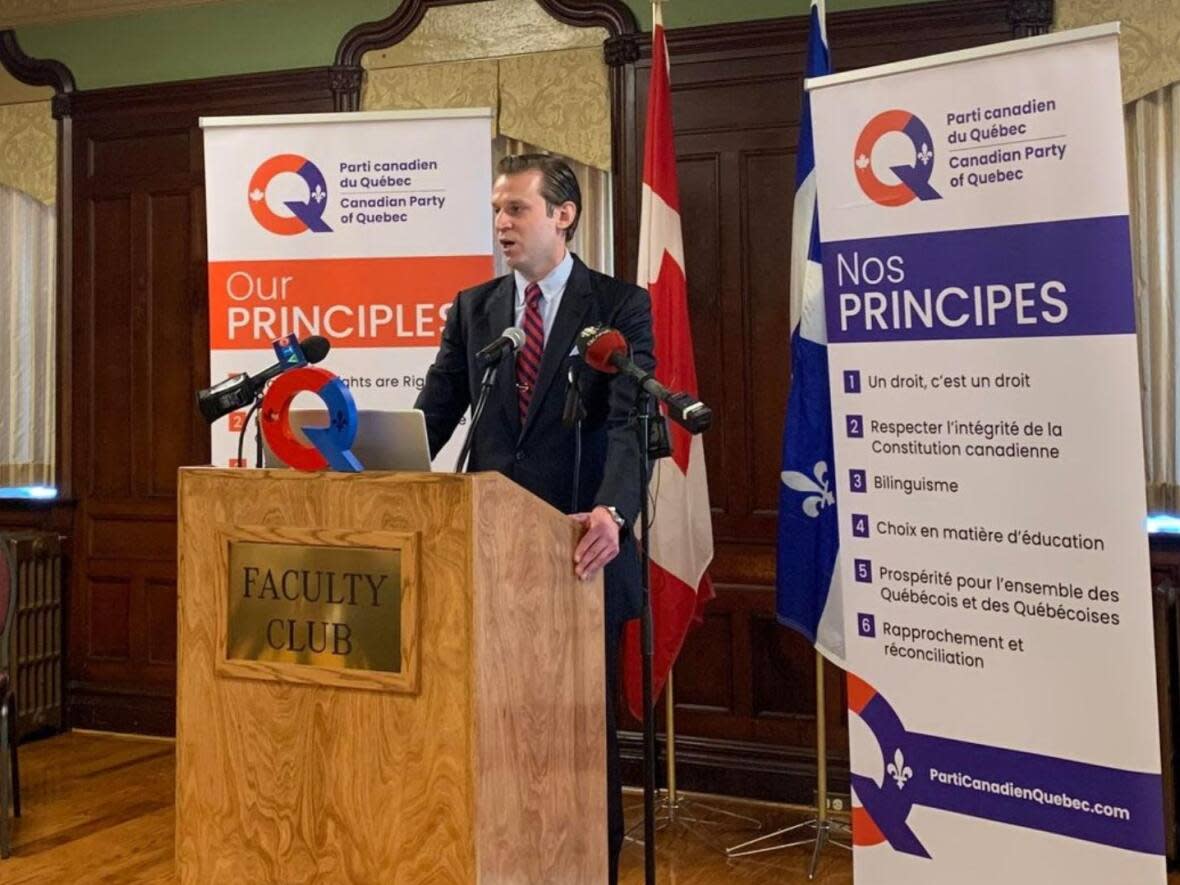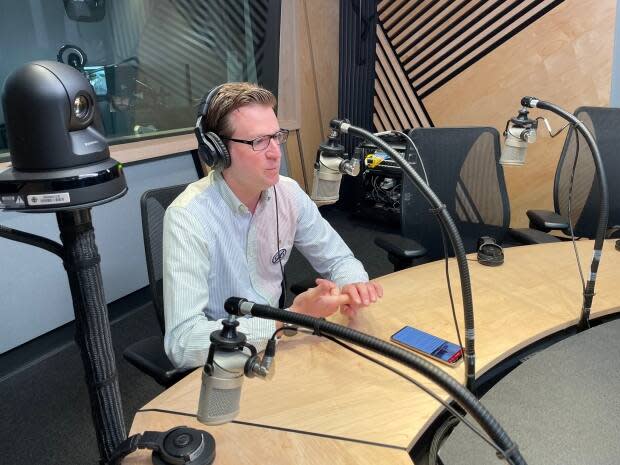Threat to French language in Quebec 'is a myth' says Canadian Party leader at campaign launch

The leader of the Canadian Party of Quebec (CaPQ) says his party doesn't have concrete plans to ensure the protection of the French language in the province — in part because he doesn't believe it needs protecting.
"The idea that French is threatened in Quebec is a myth," said Colin Standish at the launch of his fledgling party's electoral campaign Tuesday.
"There is no statistic that shows that there is a detrimental decline in the French language in this province."
His comments come ahead of the provincial election on Oct. 3 and in the wake of census data published by Statistics Canada this month that showed the proportion of people in Quebec who mainly speak French at home has continued to dwindle, while the number of English-speakers in the province has climbed.
Created to target disaffected anglophone and minority voters, the CaPQ reinforced its message of solidarity for English-speaking voters, saying it's time the provincial government put an end to divisive language and ethnicity wars.

In an interview on CBC's Daybreak, Standish didn't address the government agency's data but said "taking away human rights, crippling the economy, and penalizing" people is not the way to go about protecting French heritage and culture in the province.
He specifically made reference to Bill 96, the Coalition Avenir Québec (CAQ) government's new law to protect the French language, as well as Bill 21, which bars the wearing of religious symbols among certain public servants.
"That this province is becoming more diverse — with newcomers, with people who define their lives for who they want to be — is not problematic from my perspective nor the party."
LISTEN | Colin Standish speaks with CBC's Daybreak host Sean Henry:
Staunchly opposed to both laws, Standish said his party would repeal them, as well as Bill 40, which eliminated most school boards in the province and converted them to service centres.
If elected, Standish said he would promote the French language in a constructive way "that does not take away rights and freedoms of Canadians in Quebec."
Ensuring access to English services
Standish has criticized the Quebec Liberal Party (PLQ) — traditionally the home to English-speaking voters — for what he says is the party's inconsistent stance on Bill 96. The Liberals have faced criticism from many anglophone voters saying they feel the party hasn't done enough to defend their interests.
Since his federalist party's inception on June 15 of this year, Standish said linguistic, minority and Indigenous rights will be a key focus of the CaPQ's campaign, as well as bilingualism, religious freedom and national unity.
"We'll fight for the rights of all Quebecres, including the English-speaking minority," he said.
To that end, Standish promised to create an English-language services act, which would include an ombudsperson, a commissioner, a new ministry and a minister to ensure access to English-language services.
Standish also promised to apply Sect. 23. 1 (a) of the Canadian Charter of Rights and Freedoms to allow any Canadian citizen living in Quebec whose first language learned was English to attend English school — even if no one else in their family had attended English school.
"We would let freedom reign with regards to education in Quebec … from daycare to university, that's what we would propose in the National Assembly from Day 1," he said.
When asked if he considers himself a one-issue party, Standish said while the CaPQ is anchored in minority and language rights, it doesn't prevent him from appealing to French-speakers and addressing other issues that matter to all Quebecers.
On Day 3 of the campaign, however, Standish said the party's platform, which he said will address issues like health care, cost of living, the economy and gun control, will be unveiled "near the end of the campaign."
Either way, the party has no chance of forming government as it only has a slate of 19 candidates running in Quebec's 125 ridings.
Standish said he has several other candidates that are undergoing the vetting process, but being a new party, he knew his chances of attaining the adequate numbers were slim.
"We always had the aspirations of 125 [candidates] to represent all Quebecers, but this was always bound by the realization that we were founded two and a half months ago, and we're focused on Western Quebec, Montreal, the South and North Shores and the Eastern Townships, where we are proud to have candidates," Standish said.


